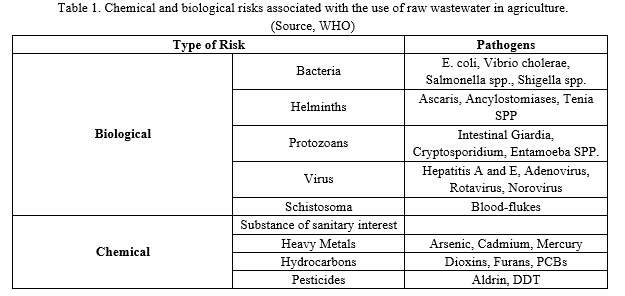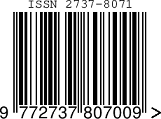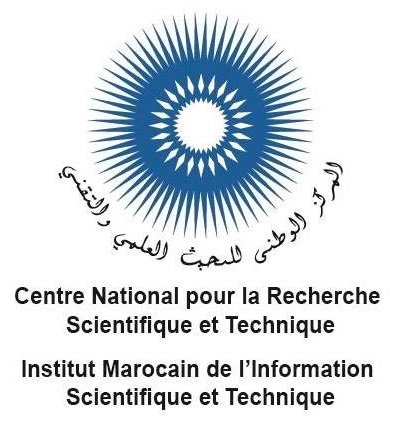Review on waste water reuse for irrigation towards achieving environmental sustainability
Keywords:
Wastewater reuse, Irrigation, Sustainability, wastewater treatment, Renewable energyAbstract
Even though water makes up around 70% of the earth's crust, just a small portion of it is suitable for terrestrial life. Water is essential for life. The small percentage of freshwater with low salt concentration in the Antarctic and Arctic (68.7%) is only 2.5% of the total water stock in the hydrosphere and is largely in the form of ice and permanent snow cover. This writing serves as a review. Journals, publications, and earlier project works pertinent to the subject at hand were thoroughly examined and strategically sampled. To gather the data needed for the paper's creation, many works were examined and summarized. Agriculture is a large consumer of wastewater globally. It is believed that finding suitable irrigation resources is crucial for protecting natural water bodies and ensuring food safety. Wastewater reuse has emerged as a practical option for pollution reduction when water reuse replaces effluent discharge to vulnerable surface water bodies, preserving and extending available water supplies. This is due to the difficulties associated with the discharge of untreated wastewater into the environment. As treating and utilizing wastewater for irrigation would make it easier to achieve sustainability, using wastewater for irrigation is an efficient strategy to lower costs and improve environmental health and safety in today's economy.
Downloads
References
Abakpa, G. O., Umoh, V. J., Ameh, J. B., & Yakubu, S. E. (2013). Microbial quality of irrigation water and irrigated vegetables in Kano State, Nigeria. International Food Research Journal, 20(5), 2933.
Adewumi, J. R., & Oguntuase, A. M. (2016). Planning of wastewater reuse programme in Nigeria. Consilience, (15), 1-33.
Akpan, V. E., Omole, D. O., & Bassey, D. E. (2020). Assessing the public perceptions of treated wastewater reuse: opportunities and implications for urban communities in developing countries. Heliyon, 6(10), e05246.
Alade, A. D. (2019). Water Resources and Sub-Sahara African Economy: Anthropogenic Climate Change, Wastewater, and Sustainable Development in Nigeria. Journal of Social Development in Africa, 34(2), 113-138.
Alemu, T., Mekonnen, A., & Leta, S. (2019). Integrated tannery wastewater treatment for effluent reuse for irrigation: Encouraging water efficiency and sustainable development in developing countries. Journal of Water Process Engineering, 30, 100514.
Becerra-Castro, C., Lopes, A. R., Vaz-Moreira, I., Silva, E. F., Manaia, C. M., & Nunes, O. C. (2015). Wastewater reuse in irrigation: A microbiological perspective on implications in soil fertility and human and environmental health. Environment international, 75, 117-135.
Candela, L., Fabregat, S., Josa, A., Suriol, J., Vigués, N., & Mas, J. (2007). Assessment of soil and groundwater impacts by treated urban wastewater reuse. A case study: Application in a golf course (Girona, Spain). Science of the total environment, 374(1), 26-35.
Chowdhury, N., Marschner, P., & Burns, R. (2011). Response of microbial activity and community structure to decreasing soil osmotic and matric potential. Plant and Soil, 344(1), 241-254.
Dalkmann, P., Siebe, C., Amelung, W., Schloter, M., & Siemens, J. (2014). Does long-term irrigation with untreated wastewater accelerate the dissipation of pharmaceuticals in soil? Environmental science & technology, 48(9), 4963-4970.
Emenike, P. C., Tenebe, I. T., Ngene, B. U., Oniemayin, B. I., Bamigboye, G., Ogundare, T., & Busari, A. A. (2016). Wastewater Reuse: An Alternative for Sustainable Agriculture.
Fierer, N., & Jackson, R. B. (2006). The diversity and biogeography of soil bacterial communities. Proceedings of the National Academy of Sciences, 103(3), 626-631. for Improving Water Quality.
Guadie, A., Yesigat, A., Gatew, S., Worku, A., Liu, W., Minale, M., & Wang, A. (2021). Effluent quality and reuse potential of urban wastewater treated with aerobic-anoxic system: A practical illustration for environmental contamination and human health risk assessment. Journal of Water Process Engineering, 40, 101891.
Hernandez, F.; Molinos-Senante, M.; Sala-Garrido, R. (2010) Economic valuation of environmental benefits from wastewater treatment processes
Hindell J.S. and Quinn G.P. (2000) Effects of sewage effluent on the population structure of Brachidontes rostratus (Mytillidae) on a temperate intertidal community.
Hochstrat, R.; Joksimovic, D.; Wintgens, T.; Melin, T.; Savi´c, D. (2007) Economic considerations and decision support tool for wastewater reuse scheme planning.
Holbrook, A., Wright, M., Sung, M., Ribic, C., & Baker, S. (2011). Statin-associated rhabdomyolysis: is there a dose-response relationship? Canadian Journal of Cardiology, 27(2), 146-151.
Idris-Nda, A., Aliyu, H. K., & Dalil, M. (2013). The challenges of domestic wastewater management in Nigeria: A case study of Minna, central Nigeria. International Journal of Development and Sustainability, 2(2), 1169-1182.
Inyinbor, A. A., Bello, O. S., Oluyori, A. P., Inyinbor, H. E., & Fadiji, A. E. (2019). Wastewater conservation and reuse in quality vegetable cultivation: Overview, challenges and future prospects. Food Control, 98, 489-500.
Ishaya, S. K., Marcus, N. D., & Kukwi, J. I. (2011). The influence of wastewater on soil chemical properties on irrigated fields in Kaduna South Township, North Central Nigeria. Journal of sustainable Development in Africa, 13(6), 91-100.
Jimenez, B., & Asano, T. (2008). Water reclamation and reuse around the world. Water Reuse: an international survey of current practice, issues and needs, 14, 3-26.
Kontogianni, A.; Langford, I.H.; Papandreou, A.; Skourtos, M.S. (2003) Social Preferences
Kookana, R. S., Drechsel, P., Jamwal, P., & Vanderzalm, J. (2020). Urbanisation and emerging economies: Issues and potential solutions for water and food security. Science of the Total Environment, 732, 139057.
Lado, M., & Ben-Hur, M. (2009). Treated domestic sewage irrigation effects on soil hydraulic properties in arid and semiarid zones: A review. Soil and Tillage Research, 106(1), 152-163.
Li, S. X., Wang, Z. H., & Stewart, B. A. (2013). Responses of crop plants to ammonium and nitrate N. Advances in agronomy, 118, 205-397.
López-Morales, C.A.; Rodríguez-Tapia, L. (2019) On the economic analysis of wastewater treatment and reuse for designing strategies for water sustainability.
Ofori, S., Pušká?ová, A., R?ži?ková, I., & Wanner, J. (2021). Treated wastewater reuse for irrigation: Pros and cons. Science of The Total Environment, 760, 144026.
Oki, T., and Kanae, S. (2006). Global hydrological cycles and world water resources.
OLUWASEUN, F. (2018). Evaluation of wastewater reuse and suitability for agricultural purpose in Akure, Nigeria. Agricultural Engineering International: CIGR Journal, 20(3), 61-70.
Powlson, D. S., Smith, P., & Smith, J. U. (Eds.). (2013). Evaluation of soil organic matter models: using existing long-term datasets (Vol. 38). Springer Science & Business Media.
Parra-Madera, C. A., Echeverria-Sánchez, A. F., Urrutia-Cobo, N., & Pérez, C. F. (2015). Wastewater Reuse: impact on the chemical and macronutritional attributes of an inceptisol irrigated with treated domestic wastewater. Ingeniería y competitividad, 17(2), 19-28., C. A., Echeverria-
Ranjard, L., & Richaume, A. (2001). Quantitative and qualitative microscale distribution of bacteria in soil. Research in microbiology, 152(8), 707-716.
Saroj, D. P., & Egbuikwem, P. N. Assessment of suspended growth biological process for treatment and reuse of mixed wastewater for irrigation of edible crops under hydroponic conditions Precious N. Egbuikwema, b, Jose C. Mierzwac, Devendra P. Saroja.
Scott C. A., Faruqui N. I. and Rschid-Sally L. Wastewater use in irrigated agriculture: management challenges in developing nations. In Wastewater use in irrigated agriculture:
Sergio G. Salinas-Rodriguez & Jan Cornelis Schippers 2021 introduction to desalination.
Singh, A. (2021). A review of wastewater irrigation: Environmental implications. Resources, Conservation and Recycling, 168, 105454.
Soutukorva, A. (2001) The Value of Improved Water Quality. Water Development and Management Unit - Topics - Irrigation". FAO. Retrieved 2009-03-12.
Siemens, Dalkmann, P., Siebe, C., Amelung, W., Schloter, M., &, J. (2014). Does long-term irrigation with untreated wastewater accelerate the dissipation of pharmaceuticals in soil? Environmental science & technology, 48(9), 4963-4970
Urrutia-Cobo, Sánchez, A. F., N., & Pérez, C. F. (2015). Wastewater Reuse: impact on the chemical and macronutritional attributes of an inceptisol irrigated with treated domestic wastewater. Ingeniería y competitividad, 17(2), 19-28.
Wintgens, D., Thoeye, C., Bixio, T., Ravazzini, A., Miska, V., Muston, M., ... & Melin, T. (2008). Water reclamation and reuse: implementation and management issues. Desalination, 218(1-3), 13-23.

Downloads
Published
How to Cite
Issue
Section
ARK
License
Copyright (c) 2023 Henok Seman

This work is licensed under a Creative Commons Attribution 4.0 International License.
Copyright on any article in the International Journal of Engineering and Applied Physics is retained by the author(s) under the Creative Commons license, which permits unrestricted use, distribution, and reproduction provided the original work is properly cited.
License agreement
Authors grant IJEAP a license to publish the article and identify IJEAP as the original publisher.
Authors also grant any third party the right to use, distribute and reproduce the article in any medium, provided the original work is properly cited.
Most read articles by the same author(s)
- Huseyin Gokcekus, Youssef Kassem, Larry T Woyea, A Prediction of Rainfall of Haifa Using MLR and ARIMA Models , International Journal of Engineering and Applied Physics: Vol. 3 No. 1: January 2023
- YOUSSEF KASSEM, Hüseyin Gökçeku?, Qand Abbas Salih Furaiji, Evaluating the performance of online simulation tools for grid-connected rooftop solar systems in Baghdad, Iraq , International Journal of Engineering and Applied Physics: Vol. 2 No. 2: May 2022














